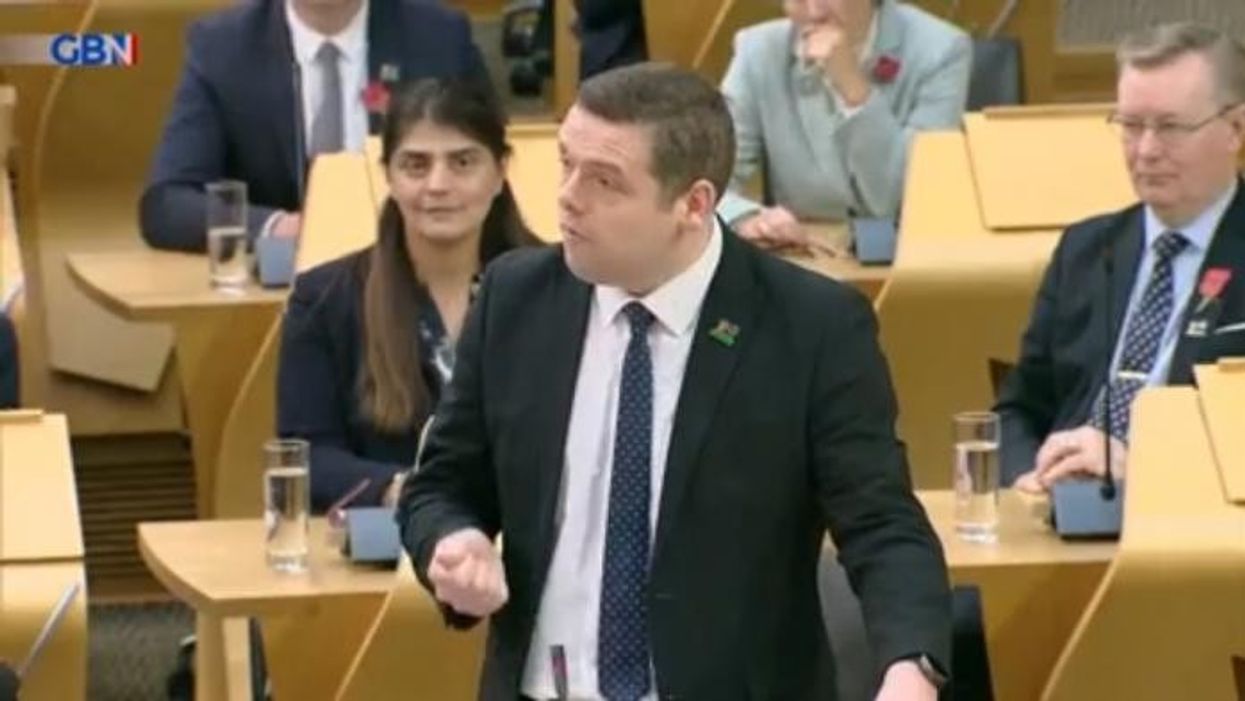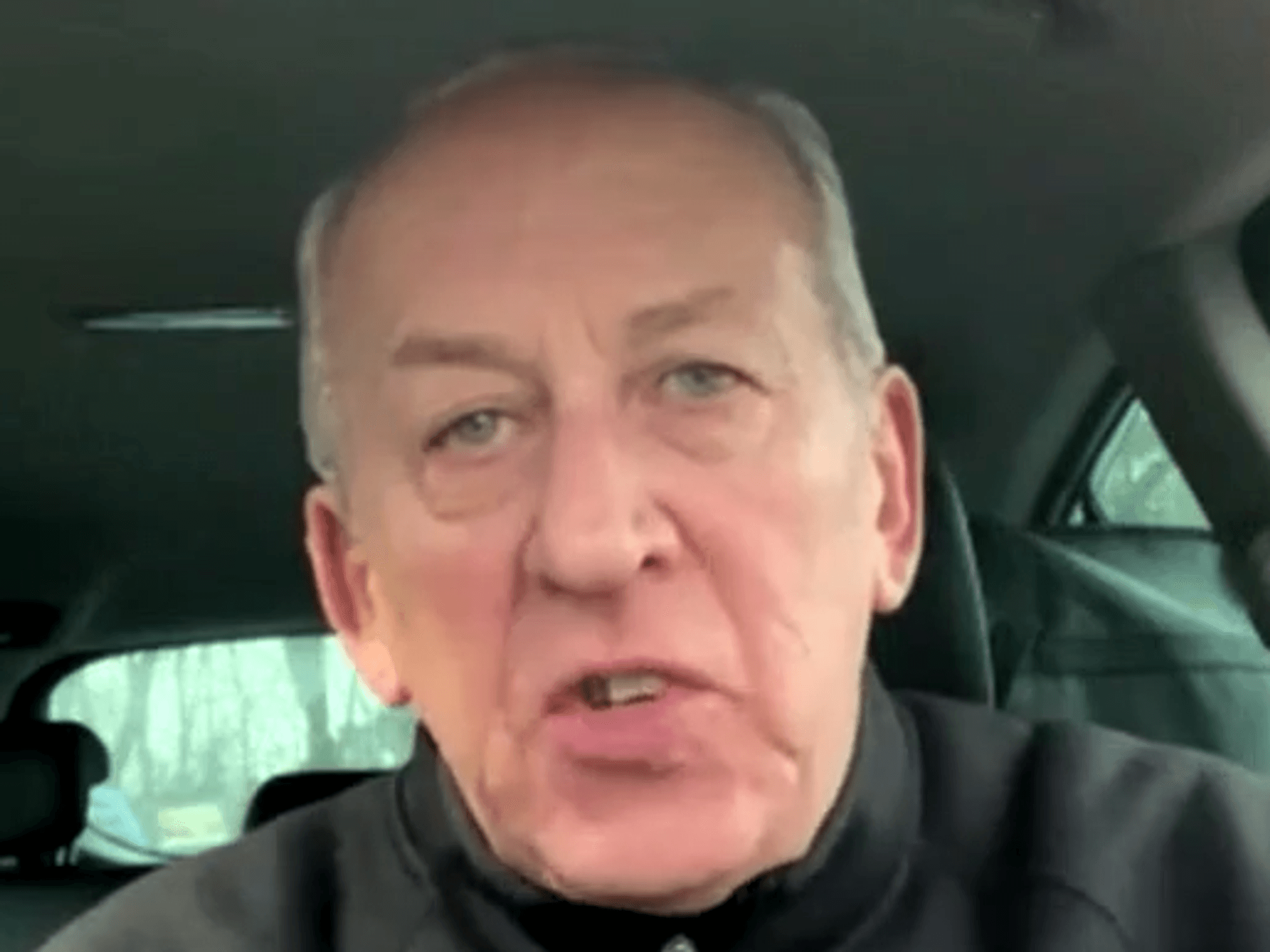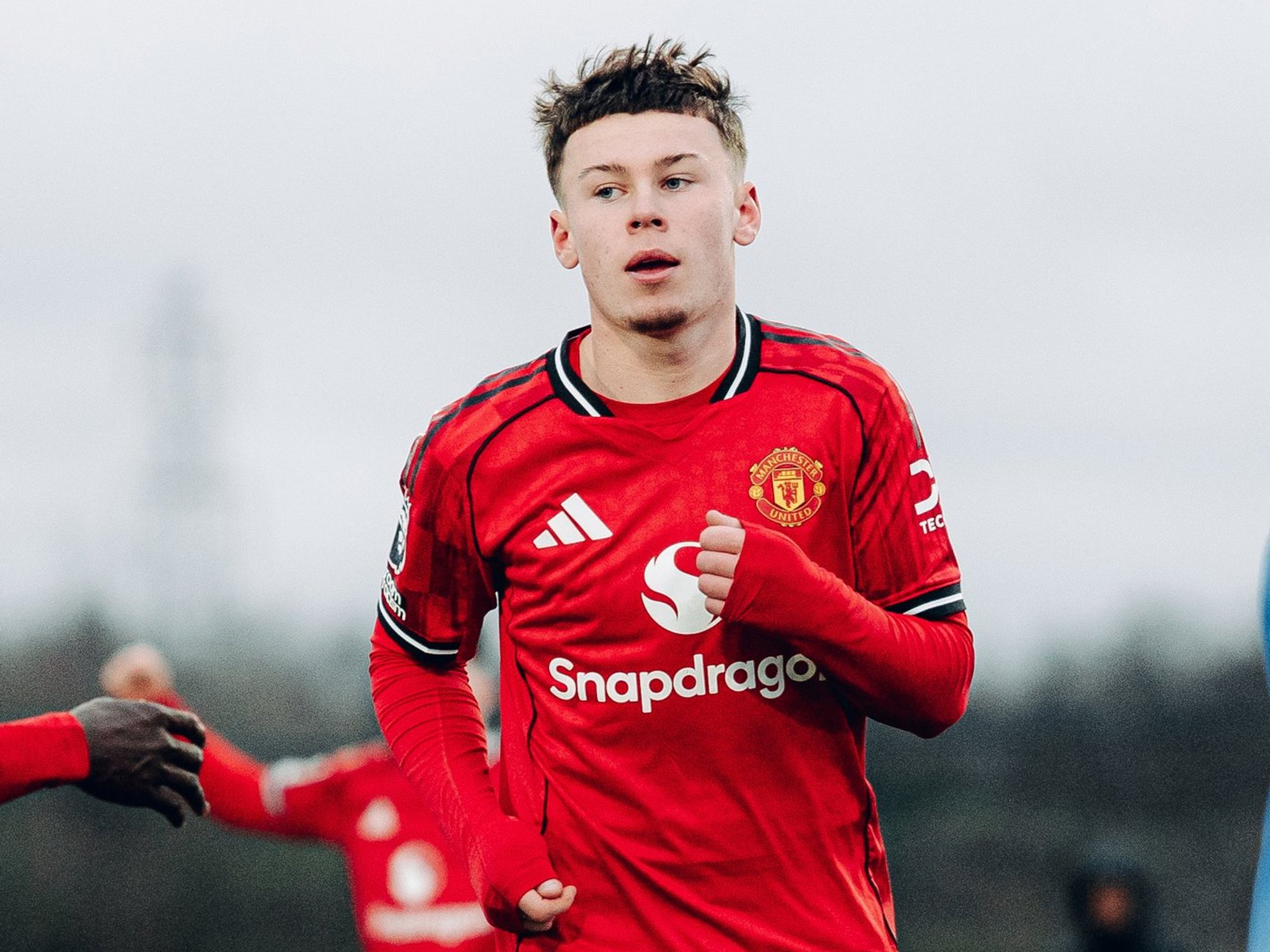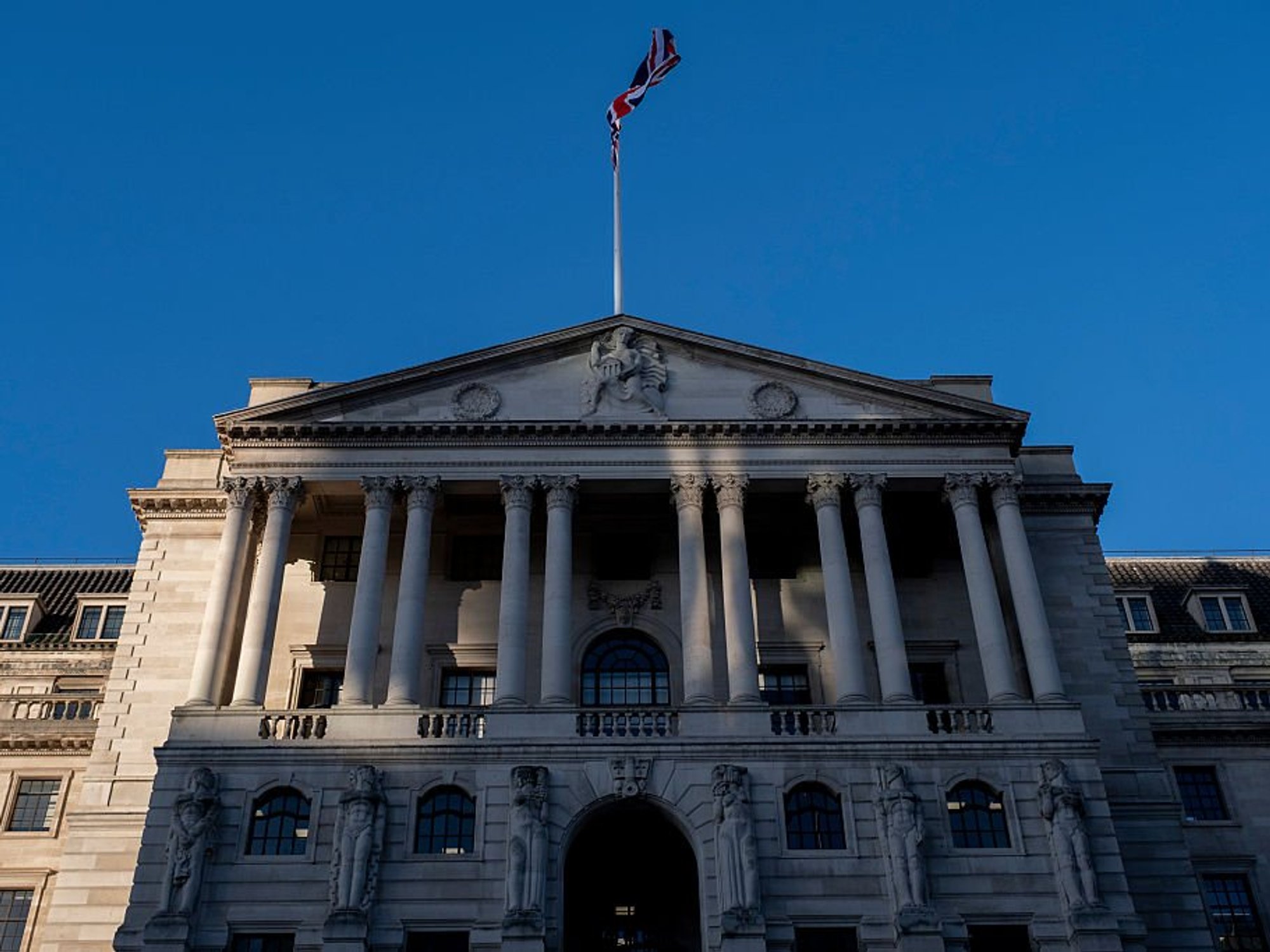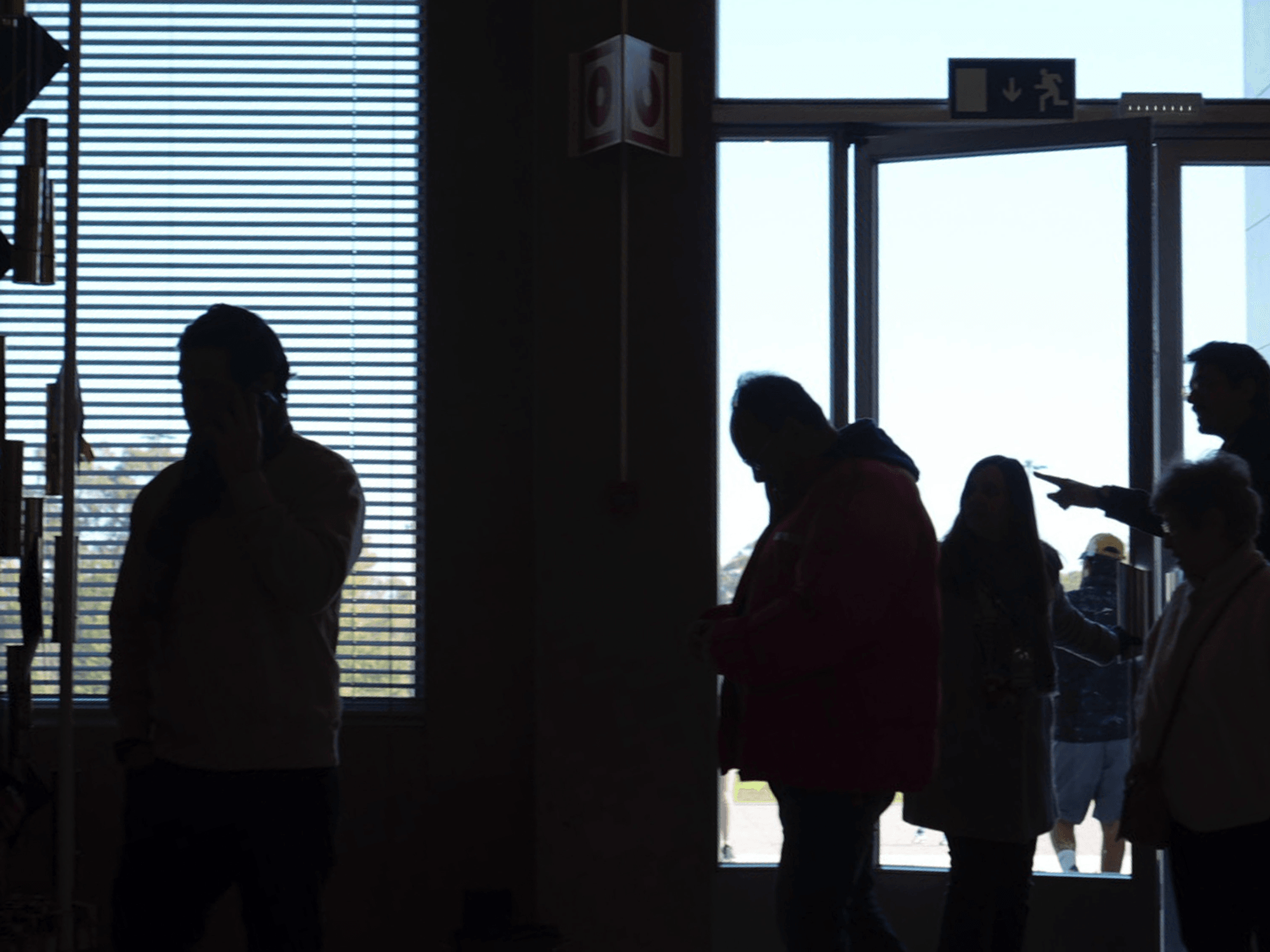Inside the rise, fall... and imminent fatal COLLAPSE of the SNP under Nicola Sturgeon and Humza ‘Useless’

In this members-only feature piece, GB News digs into the rapid rise and almighty fall of the Scottish National Party ahead of the 2024 General Election
Don't Miss
Most Read
Latest
Scotland has for the past decade been in a state of political hegemony. The SNP hoovered up disillusioned former Labour voters, many of whom voted for independence, just months after Scots assumed the constitutional question was put to bed.
Fast forward to the upcoming 2024 General Election and Sir Keir Starmer has the opportunity to pull off an astonishing achievement.
Forget the increasingly likely challenge of overturning a Tory majority of 80 seats, the Labour leader now looks set to rejig Scottish politics and with it could seriously hamper calls for Scottish independence.
Opinion polls put Labour neck-and-neck with the SNP, with Redfield & Wilton handing Starmer a marginal one-point lead.
However, the situation north of the border has not yet translated into a collapse in support for "Scexit" - as it has become known among some.
The same pollster puts ‘No’ ahead by a similar margin to the one obtained back in 2014.
But a collapse in support for the SNP, reducing the number of nationalist MPs taking seats in Westminster, could alter the debate about IndyRef2.
There have not been as many electoral tests in Scotland compared to England.
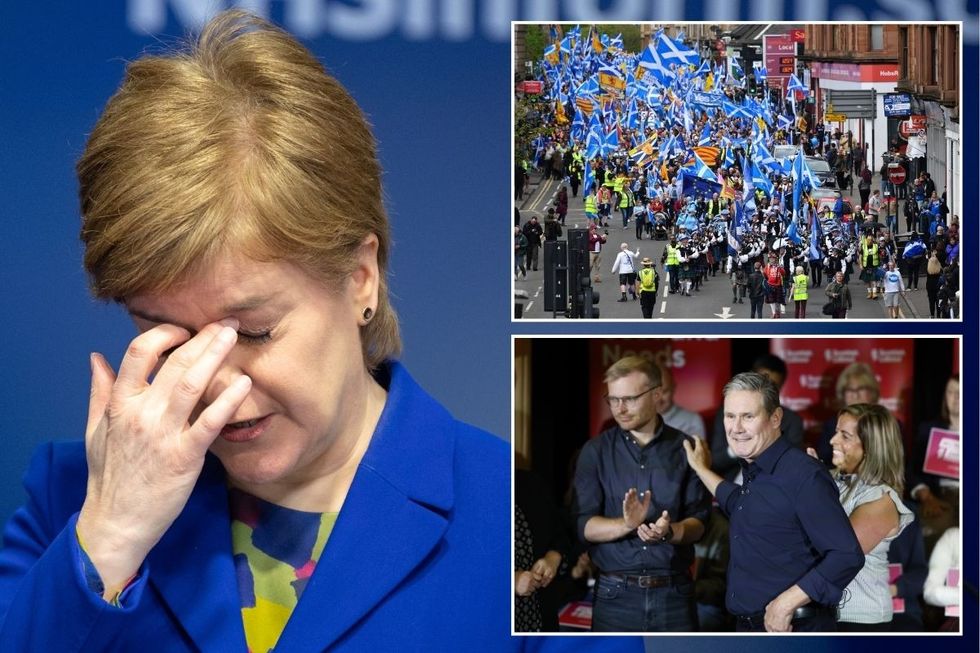
The SNP appears to be leaking support to Keir Starmer's Labour Party
|GETTY
A by-election in Rutherglen & Hamilton last year produced a taster of what might yet come as Labour overturned the SNP’s 5,230-vote majority to return Michael Shanks to Westminster by 9,446 votes.
Starmer celebrated the victory by extolling Labour’s Unionist credentials, stressing the left-wing party “believes very strongly in the Union”.
However, unlike in England, Labour’s surge is not as strongly supported by voters disapproving of Tory blunders.
Tom Harris, who served as the Labour MP for Glasgow South and Shadow Environment Minister under Ed Miliband, appeared to blame both former First Minister Nicola Sturgeon and her successor Humza Yousaf for the recent collapse.
LATEST DEVELOPMENTS: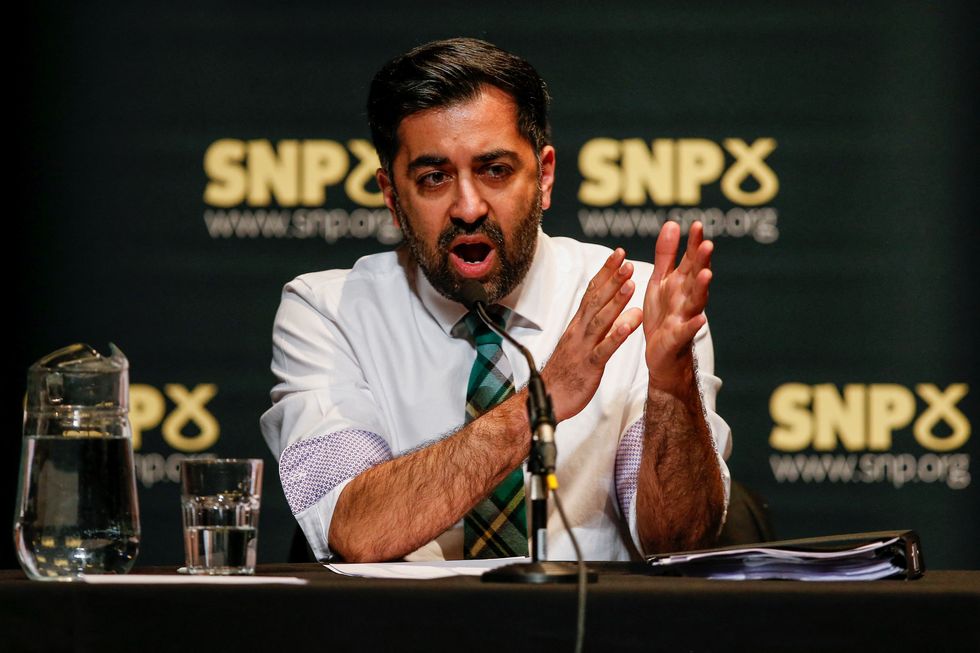 Humza Yousaf's SNP colleagues also faced a backlash in Holyrood | PA
Humza Yousaf's SNP colleagues also faced a backlash in Holyrood | PAHe told GB News: "What's changed is that Sturgeon disappeared. When she left it wasn't the case that voters necessarily liked Humza Yousaf less, but when she disappeared there came a bit of a dawning that she was what I would call her a snake oil salesman.
"Maybe people don't have quite that harsher verdict but they're certainly disillusioned in hindsight with her leadership.
“When the SNP won the 2015 General Election by a landslide - and that's when I lost my seat - the Unionist community in Scotland thought the game was up and that independence was coming just because of the drama of that night.
"Despite having won every single election that she led her party into, she didn't manage to push the dial on independence a single step further.”
Former Scottish Tory MP Ross Thomson also said: “You've seen changes at the top of the SNP. The way the First Minister left office, surrounded with that cloud of scandal, and all the stories that have come out since then, about being interviewed by police, including other members of the team at time. That's been quite the hangover for Humza to deal with.”
He added: “The SNP has been in Government in Scotland since 2007. It is very normal that the public become a bit fatigued with parties who have been in power for that length of time. Voters look at their record and think 'are things better now than they were before the SNP got the keys to power?' And they will be doing that no doubt with the Conservatives at a UK level.”
However, it is not just Unionist figures who were damning about the SNP’s high-command.
Neale Hanvey, who defected from the SNP to Alba in 2021, told GB News: “Hopefully, the membership and others, will make sure that there's a swift and speedy change and Humza will be done and dusted. It's about time for him to move on. He's a completely ineffective First Minister and he's useless to the independence movement, to be honest.”
Taking aim at Sturgeon, the Kirkcaldy & Cowdenbeath MP said: “There's a whole lot of really big issues and I don't see how anyone who has been in the orbit of Nicola Sturgeon can insulate themselves from those issues.”
Alba, which was set up by former First Minister Alex Salmond, is putting increasing pressure on the SNP to put forward a hardline pro-independence position ahead of the General Election.
And here lies some profound political issues facing the SNP.
Yousaf can opt to include “independence” on the party’s official logo in a trivial bid to stave off the threat from Alba but truly the position will never be enough for some.
OTHER DEVELOPMENTS: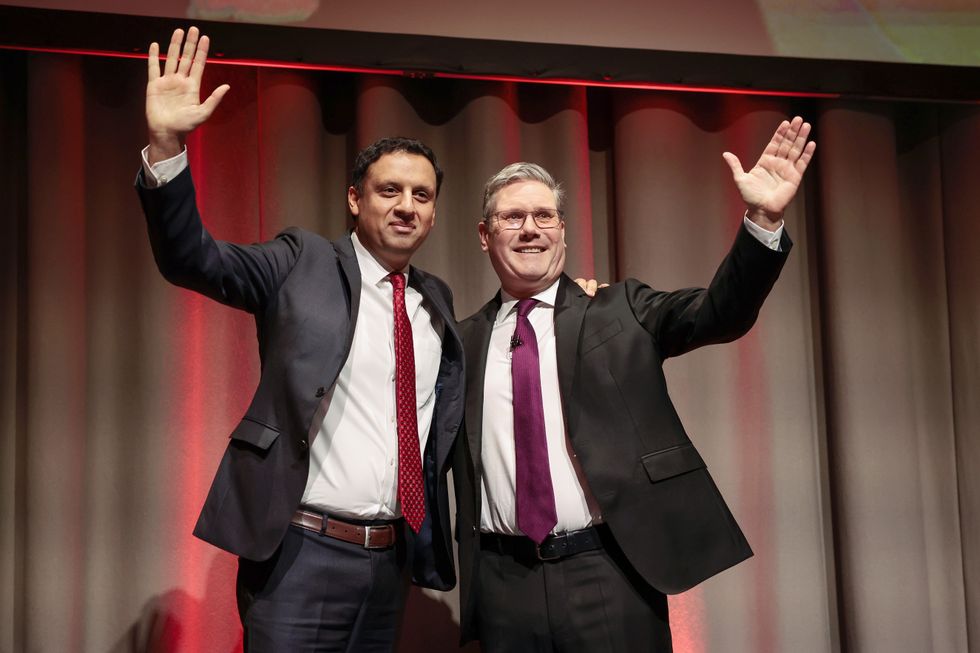
Leader of the Labour Party Sir Keir Starmer (R) stands on stage with Anas Sarwar leader of Scottish Labour (L)
|GETTY
The Scottish Government’s document into independence was last week described as “full of contradictions and nonsense claims” by critics after it voiced support for joining Nato while removing nuclear weapons.
Echoing such concerns, Hanvey said: “There's no detail, there's no plan, and they're completely abandoning many of the important tenets of the independence movement. Whether that's throwing the full weight behind Nato and weapons of mass destruction, or their inability to tackle child poverty and their absolute failure across a whole range of issues on energy, including selling off renewable energy for a very small amount of money... They're just absolutely cack handed, ridiculous decisions.
“All the stuff that they've done with the Green Party has been absolutely dreadful. There are obviously other important issues like they're abandonment of North Sea oil and gas and Nicolas Sturgeon's crusade on gender ideology has pushed many, many people, including myself, away from the party. I can never be a member of a party who's advocating the types of policies that they have to infringe on everyone's freedom of speech and human rights. It's appalling.”
He added: “For as long as Humza Yousaf, or anyone who was in the orbit of Nicola Sturgeon is in charge of the SNP, they will never deliver independence. That's my absolute settled view. They're not serious. They're devolutionists, they're leading people on with false promises. They have absolutely no intention of delivering independence.”
Hanvey was keen to stress some members of the SNP remain passionate supporters of independence but argued the high-command is more fixated on personal political games. However, and almost simultaneously, the SNP is dealing with an electorate prioritising issues above independence and constitutional matters.
Redfield & Wilton revealed independence emerged as the fourth most important issue ahead of polling day, behind the economy, NHS and immigration.
Even the percentage of SNP voters identifying the Union as the most important reason stood at just 35 per cent, well below the 69 per cent picking healthcare and 61 per cent choosing the economy.
Thomson explained: “People genuinely feel the independence question is way down the agenda now. There were sort of spikes in support for a potential second referendum after Brexit.
“But I think that died away. It certainly died away when you look at what happened in the pandemic.”
Harris, who was keen to stress that some opinion polls still put the SNP marginally ahead and Yousaf can rely on a base of staunch pro-independence voters, was far less convinced.
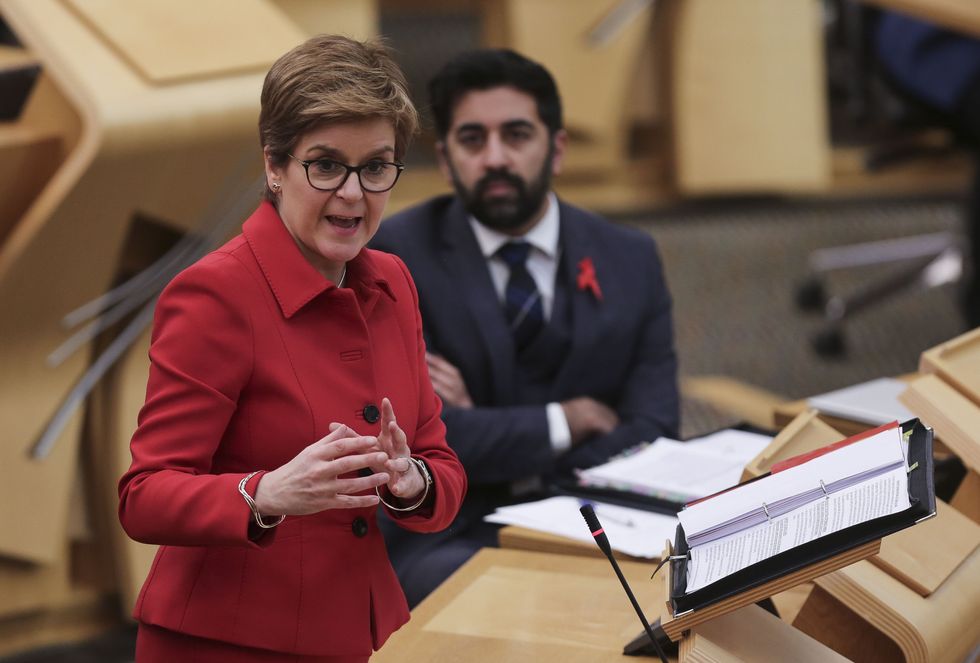
Neale Havney slammed both Nicola Sturgeon and Humza Yousaf
|GETTY
He argued: “The big strategic victory that Alex Salmond won back in 2014 was raising independence to such a high profile that it became the defining issue of Scottish politics and it still is. The task for Labour is to try and move people off that agenda to the health service, economy. That clearly hasn't happened, we've had 10 years with Scotland focused on independence.
“Once voters were given the choice, yes or no, you have to make that choice. And once you've made that choice, it's actually quite difficult to shift. It's not like support for a party, because support for a party depends on who the leader is and what's happening with the party, what the troubles are. Support for a principle is far more stable because the principle remains the same, irrespective of whichever parties associated with it.
“The only way that support for independence will diminish, and it would be a very slow process independent of the fate of individual parties, is if people in Scotland reconcile to the fact that there's not going to be another referendum in our lifetime. If those factors are maintained then gradually, very slowly, support for independence will start to taper off. However, I don't think we're ever going to get back to the situation pre-2012 when support was only at 30 per cent.”
However, and perhaps somewhat surprisingly given their political allegiance, both of the former MPs appeared to argue Labour were the best-bet for Unionists hoping to give the SNP a bloody nose.
And it’s not hard to see why; Tory success north of the border is rather isolated in post-war history as Ruth Davidson’s success in 2016 was followed by Theresa May in 2017.
Beyond these otherwise isolated electoral episodes, Labour is truly the Unionist party with the ability to wreak the most havoc for the SNP.
Labour finished above the Tories in Holyrood elections held between 1999 and 2011, topping the overall poll in the first two contests.
And until the Corbyn years, Labour cemented its position as the largest Unionist party north of the border between 1959 and 2015.
Starmer is perhaps the most at threat from any future SNP revival, particularly given both parties sit on the left, but he is also the Unionist movement’s best-bet to slowly whittle away desperate cries for a divisive second independence referendum.
Thomson, who explained how the SNP were targeting ex-Labour voters in the so-called Central Belt, said: “Humza's strategy of winning the most seats in a General Election. That's not a mandate for independence. That's a joke, it's laughable. As much as his rhetoric is about the SNP versus the Tories, Humza knows the real battle is really between the SNP and Labour.”
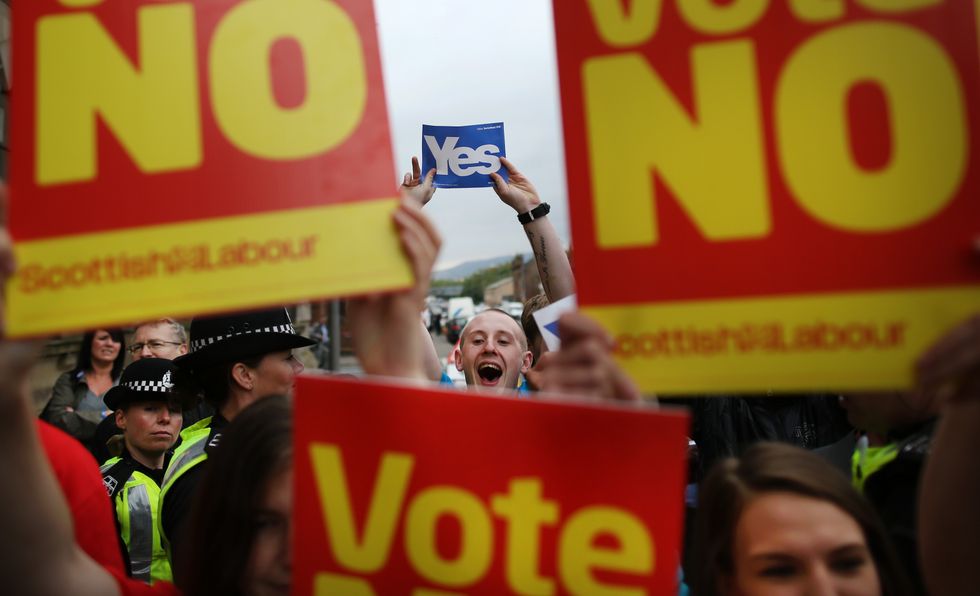
Scottish politics has been increasingly divided since the 2014 independence referendum
|GETTY
He added: “I don't see Labour offering a Section 30 order. I know the Conservatives will probably want to warn about uncertainty, pointing to Kezia Dugdale voting for the SNP and Labour MSPs flirting with having another referendum.
“Their play will be the only people who will stand up for the Union is the Conservative Party. In reality, I think if Keir Starmer wins in Scotland, which is fairly likely looking at the polling, that itself kills off the argument for a second referendum.”
Harris also argued that Labour were in a stronger position but caveated the claim by pointing out it must not fall into a trap on buckling to nationalists.
The 60-year-old said: Labour is the only party that's structured in such a way, such as in terms of geographical support across Scotland, that can consign the SNP back into their box and eliminate the prospect of independence.”
He added: “But there is a big caveat. It has to be a Labour Party resurgence by a Labour Party that doesn't give an inch on an independence referendum. As soon as Labour Party people start saying, 'Oh, well, yes, there could be a referendum at some point in the future', it sends the SNP running again'. They've really got to learn from their own mistakes, which go back decades, back to pre-devolution days. They've got to ditch the constitutional question altogether and they've got to discipline themselves.
“Labour wants people to talk about something other than the constitution. Whether that's possible or not, I don't know. But the one thing that is going to get people talking about the Constitution again, is raising the prospect of that there might well be another referendum at some point and they should avoid that completely.”
Harris also welcomed Scottish Labour leader Anas Sarwar’s slogan to vote for a Government rather than a protest and suggested Labour could win over soft independence supporters.
However, the former Vote Leave campaigner also extended an olive branch to Tory MPs and MSPs, saying: “Conservatives in Holyrood do a good job opposing this Government. The Labour Party, under Anas Sarwar, spends a lot of time attacking the Conservatives in Scotland. I think this is a bad idea and both he and Douglas Ross should be singing from the same hymn sheet when it comes to attacking the SNP.
“There are very few Conservative seats that Labour can realistically win in Scotland. It would help Labour if the Conservatives could hang on to the seats it has in Scotland. That sounds a bit counter-intuitive as it's the Tories that Labour will have to displace in the UK. But if the polls are correct then it doesn't that they came to intuitive senses. It's the Tories that Labour have to displace throughout the UK. But if the polls are correct, then it doesn't seem a dozen seats in Scotland will make a difference to a Labour majority.
“It would be better for Labour in the long-term, culturally, politically, if the SNP are utterly defenestrated at the general election. The Tories can play a part in that. The Tories are chomping at the heels of SNP MPs in North East Scotland in particular and Labour should be wishing them well in that.
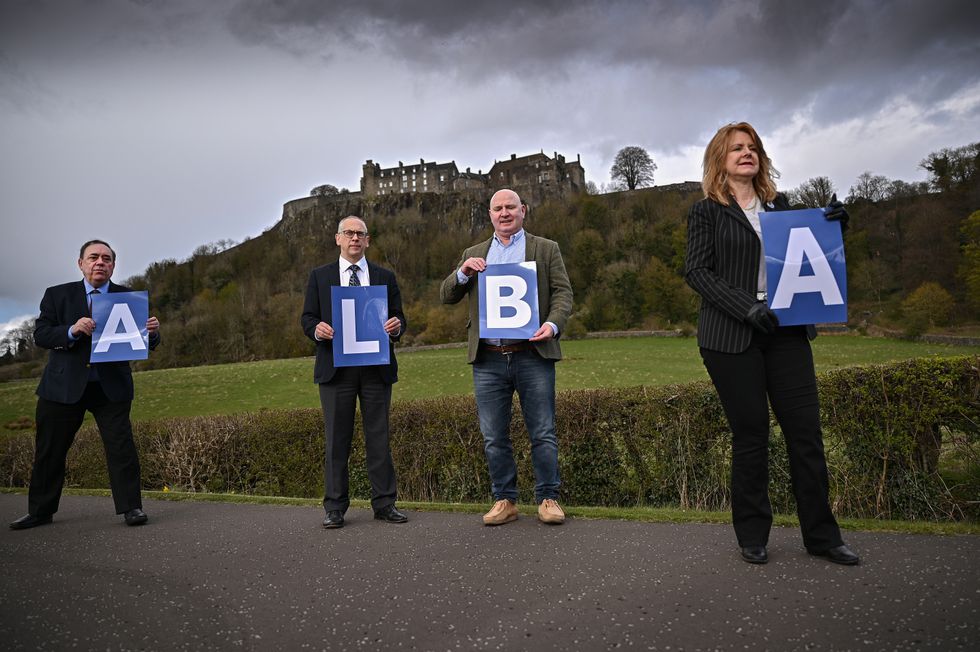
Former First Minister and leader of the Alba Party Alex Salmond campaigns at Stirling Castle
|GETTY
“They can't explicitly say that because the Constitution prevents any Labour Party member from advocating support for any party other than Labour but they could just acknowledge that for many Scots it's the Union that is their priority.”
However, both Thomson and Harris appeared confident Unionist voters would also look to tactically vote in a bigger blow to the SNP.
Tactical voting helped Deputy Scottish Labour leader Jackie Baillie return to Holyrood in 2021 with a slightly larger majority in Dumbarton.
It also seemingly ensured Scottish Tories made inroads in 2017, particularly in the North East where Conservatives retain strong levels of support.
But it could still get worse for the SNP as Alba remains undecided about whether or not it will stand candidates in constituencies at the 2026 Holyrood elections.
Hanvey said: “I can't really speculate on that because that's a decision for our membership. It really depends, is the answer. If we've still got a rudderless, directionless SNP leadership going into the election, and it's clear that they're not going to do anything serious about independence, then that would be one consideration.
“If we had a renewed and revamped SNP who were willing to work across the movement and engage with their former colleagues in Alba then that would be a very different complexion on the approach that we would take and that would be my preferred option. I want to continue to work with my friends and colleagues in the SNP to deliver independence.”
Hanvey conceded Alba rise’s has not been as rapid as he would like but the nationalist party is building strongly going into the next Scottish Parliament Election, with defections from the Kirkcaldy & Cowdenbeath MP, East Lothian MP Kenny MacAskill and Edinburgh Eastern MSP Ash Regan.
Other defections have been seen at a local council level and former candidate Steve Chisholm switching support to Alba.
GB News approached the SNP, Scottish Greens and Scottish Liberal Democrats for comment.


